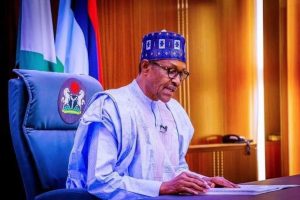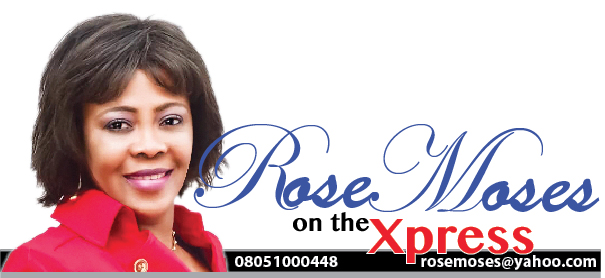By ROSE MOSES
October 1, 2020, marked Nigeria’s diamond jubilee of flag independence from colonial rule. Without a doubt, the 60th anniversary, in any event, is celebration-worthy.
As usual, the federal government had lined up commemorative activities, including the anniversary logo launch some days before.
The plan for the anniversary finale was for President Muhammadu Buhari to give a live simulcast before the usual march past at the Eagle Square ceremonial grounds in the capital.
However, there was nothing much to celebrate, going by popular reactions online. Social media was abuzz with the slogan: ‘Send me a “happy independence” message and I will block you.’

Many citizens of Nigeria and indeed uncountable others outside the social media believe Nigeria is headed in the wrong direction. Poverty, insecurity, unemployment, unsatisfactory power supply, poor healthcare facilities, and corruption in high places are cited as assuming more dangerous dimensions.
These and many other vices, they would argue, make for a sad national anniversary, suggesting therefore that those saying ‘happy independence’ are grossly wrong.
Indeed, if such basic necessities of life are still a mirage to the generality of the people in a country so richly blessed with natural and human resources, then something, really, is wrong somewhere.
READ ALSO: https://www.thexpressng.com/2020/10/05/mssn-holds-the-key-to-nigerias-future-yusuf-ali/
In that case, one can easily understand the anger in the land. Nigerians, in the midst of gross maladministration, are roundly exploited, milked dry and almost choked to death by the system in form of taxes, duties, tariffs, levies and hike in prices of goods and services.
Yet, one can hardly see how these incoming revenues are being used to improve the peoples’ lot.
While the people live through periodic increases in electricity tariffs, for instance, Nigerians hardly rely on regular power supply for productive endeavour. They are about the only people on earth who pay for power denied. We pay for darkness, in other words through the fraud-prone estimated billing system.
Worse still, we spend heavily on diesel or petrol to power generators, which happen to be the only reliable power source for many–the same way we mostly pay for services not rendered in practically all other sectors.
Should we talk about telecommunications and other service providers? Indeed, it would seem that all evil forces under the present administration gang up against the ordinary folks just to make life miserable.

Nigerians now pay through the nose to make telephone calls or use internet services. The tariffs on these services are indeed mind boggling. And the crude thing about it is that they were seemingly inserted, albeit, secretly in such a way that the consumers hardly get to know they are paying heavily until the airtime and data run out at the speed of light.
The banks on their part are clinically shaving account holders with all manner of charges. After a drastic cut on interest rate for fixed deposits, for instance, it’s now the turn of the little you make on savings accounts, which has also been drastically cut. The percentage paid on your savings as I write, is as good as nothing. And when you ask why, accusing fingers point to the Central Bank of Nigeria (CBN).
Yet, this CBN policy will not trim the withholding tax and the bank charges on such interest, which has remained as constant as the Northern Star at 10 percent. Customers are so helpless in the face of very harsh economic policies and are meant to bear all the brunt.
Life indeed, has never been this tough for a nation and its people. If there has ever been anything close to what is being experienced today, it would be in 1984 during Buhari’s time as head of the military junta that overthrew the Second Republic. So much so that the people are quick to point out that the two times Nigeria has been through recessions have been during Buhari’s reigns.
The joke actually is that it was not just recession the second time (2016), but also inflation and stagnation all summed together.
Under the circumstance, therefore, why won’t criminality hold sway? Besides hunger, the level of destruction and waste daily, including soldiers lost in battle with militants of whatever persuasion is unprecedented, no matter how anyone would want to downplay the development.
READ ALSO: https://www.thexpressng.com/2020/10/05/behold-the-nigeria-born-man-who-fought-the-nazis-in-warsaw/
Sadly, the government’s body language, most times, has continued to embolden perpetrators to do more damage to both the lives and psyche of the nation.
Interestingly, and all through his anniversary speech to the nation last week, President Buhari hardly mentioned the deadly groups and their criminal activities across the country.
Instead, what we got to hear were justifications for very insensitive and harsh policies that are in addition, dealing very hard blows on families and ordinary people across the country.
For instance, when the president went on to announce that it makes no sense for oil to be cheaper in Nigeria than in Saudi Arabia, one hardly sees the basis for the comparison. For a start, the standard of living in Saudia Arabia is nowhere near what obtains in Nigeria.
When you understand that the minimum wage in Saudi Arabia is put at about 5,300 riyals (about $1,412), which is equivalent of N538,395, you will simply agree that the comparison is grossly unfounded, considering that the minimum wage in Nigeria is N30,000, less than $100, actually.
Unless the Nigerian government is saying that they are about to close the gap, the comparison truly holds no water. And most especially, why can’t our refineries be put in order? Why must Nigeria produce crude, ship it out for refining and then import it back with foreign exchange to be sold in Nigeria when this cost would have been cut drastically, if the product is refined at home.
But let’s not over flog the issue because corruption will never allow those responsible to address this monster head-on.
In justifying the full deregulation of the petroleum sector, which has more than doubled the cost of the products from what he met it in 2015, PMB had said: “Petroleum prices in Nigeria are to be adjusted. We sell now at N161 per litre. A comparison with our neighbours will illustrate the point; (a) Chad which is an oil-producing country charges N362 per litre; (b) Niger, also an oil-producing country sells 1 litre at N346; (c) In Ghana, another oil-producing country, petroleum pump price is N326 per litre.”
Continuing, he said: “…Egypt charges N211 per litre. Saudi Arabia charges N168 per litre. It makes no sense for oil to be cheaper in Nigeria than in Saudi Arabia.”
Very angry Nigerians have been reacting to this and many other points made. The social media easily made mincemeat of it, tearing the arguments into pieces.
A particular respondent on Facebook, for instance, argues: “But, it makes sense for Saudi Arabia, Egypt, and Ghana to have constant electricity, but not Nigeria? When it’s time to justify hardship, you are quick to compare Nigeria with other countries.”
He continued: “The infrastructures in Dhahran or Riyadh can’t be compared to that of Port Harcourt. Neither can you compare the healthcare facilities at Sharm El-Sheikh to that of Abuja, but you have the temerity to compare apples with oranges, because in your rulebook, instead of you to focus on how to uplift over 100 million citizens from poverty, you have become the poster child of capitalising gains and socialising losses.”
The president, also in the speech, which, like others before it, didn’t go down well with the generality of the people, touched on other incendiary issues.
Although the anniversary speech generally said all the good things one can ever imagine on all the issues and sectors chosen, anyone that keenly watched and listened would wonder which country the president was referring to.
One thing, though, is that Nigeria truly needs serious healing. Incidentally, those mouthing the word, actually have no such medication to administer. But las las, using one of social media slangs, we will be all right. It’s just a matter of time. Something must surely give.


